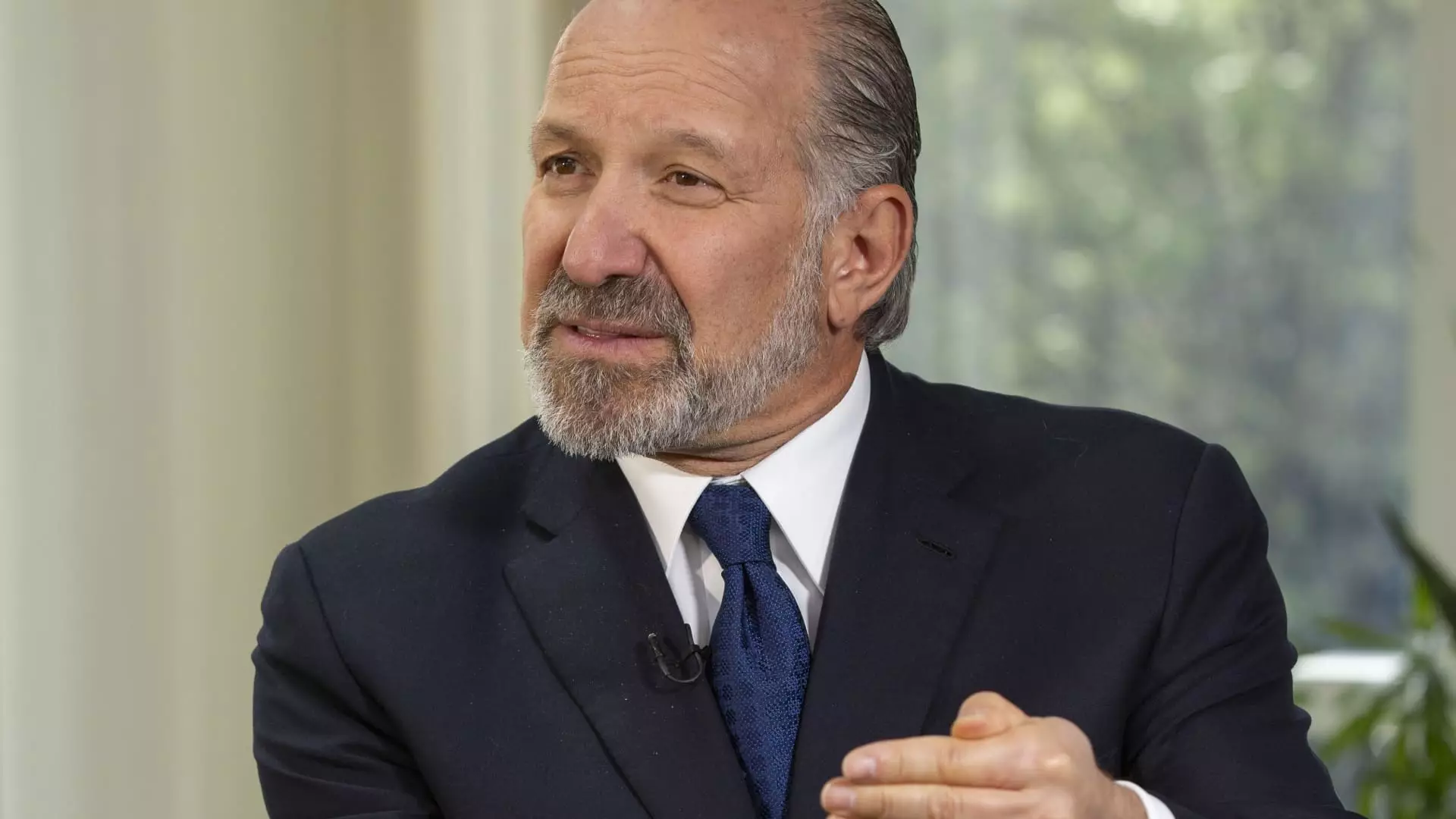In a dramatic turn of events, powerful voices within the U.S. government are now advocating for a more aggressive stance on taxpayer-funded support for the tech giants that dominate the chip industry. When Howard Lutnick, a prominent figure in the commerce sector, boldly declared that Intel should be required to give an equity stake in exchange for CHIPS Act funds, he revealed a fundamental shift in how public investment is perceived. Traditionally, government funds were seen as grants or subsidies—measures to bolster industry without strings or direct influence. Lutnick’s push for equity stakes dramatizes an evolving belief: that the government must not only invest but also share in the potential gains, transforming the relationship into a form of partnership with clear ownership stakes.
However, this move disrupts a core tenet of free enterprise, where markets are left largely to their own devices, and government support is supposed to act as a catalyst rather than a stakeholder. Lutnick’s stance raises pivotal questions about the role of government: Should taxpayers merely fund private innovation, or should they expect to profit directly from supporting national strategic industries? In advocating for nonvoting equity positions, the emphasis appears to be on profit-taking rather than governance—aiming for financial returns without meddling in daily operations. Nevertheless, such a shift risks politicizing these investments, blurring lines between government oversight and corporate independence. It’s a provocative proposition: should the U.S. government transform into a shareholder, or does this undermine the competitive spirit that drives innovation in the first place?
The Geopolitical Implications of Government Stock in Private Firms
The discourse takes on an international dimension when considering the White House’s purported discussions about acquiring a 10% stake in Intel. If true, the U.S. government would transform from a passive supporter to an active participant, potentially becoming the company’s largest shareholder. This approach risks further entrenching the U.S.’s desire to reshape the global supply chain for advanced chips—part of a broader strategy to reduce reliance on countries like Taiwan and South Korea, which dominate chip manufacturing.
While national security undoubtedly justifies some form of strategic investment, there are profound risks tied to such moves. Turning government funds into equity stakes could distort market dynamics, giving the state an unexpected level of influence over critical infrastructure. It could also prompt retaliatory moves from geopolitical rivals, creating a less predictable environment for private companies aiming to innovate. The fact that major chipmakers like TSMC and Samsung are also beneficiaries of U.S. aid underscores the hypocrisy of selectively demanding equity stakes—what message does this send about the trustworthiness of these firms or the intentions behind future investments?
Furthermore, this raises a troubling question: can a government truly operate a profit-driven enterprise without compromising neutrality? If stakes are acquired, will they be leveraged for political influence rather than purely commercial goals? Such a scenario could undermine global confidence in American innovation leadership, turning strategic investment into a contested terrain where economic and political interests intersect dangerously.
The Industry’s Fragile Future Amid Policy Shifts
Intel’s recent struggles highlight a deeper issue: the fragility of U.S. leadership in semiconductor manufacturing. Despite billions poured into factories in Ohio and promises of cutting-edge chips, the industry’s future remains uncertain. The ambitious plans for the “Silicon Heartland” are marred by delays and strategic recalculations—partly due to market conditions, partly due to shifting political priorities.
The delay of Intel’s Ohio project until 2030 reflects a broader hesitance in the industry—a recognition that government support alone is insufficient without clear market demands and sustainable demand for advanced chips. While the Biden administration aims to position the U.S. as a manufacturing powerhouse again, Lutnick’s proposal to hold equity stakes introduces the unsettling possibility of turning these efforts into profit pipelines, with implications for innovation and the public interest.
Adding to this complexity is Intel’s internal turmoil and leadership change. CEO Lip-Bu Tan’s recent onboarding after a turbulent exit of his predecessor signals internal instability, which could be exacerbated by politicized funding arrangements. The industry’s future depends on a delicate balance between strategic government aid and free-market incentives—something that is increasingly at risk if equity stakes become commonplace.
By insisting on profit-sharing, the government risks alienating industry players and hampering collaborative innovation. The tech sector thrives on agility and freedom from political entanglements; turning taxpayers into unwitting investors might stifle that dynamic, risking a future where public interests are overshadowed by the pursuit of quick financial returns.
—
In essence, the recent push towards governmental equity stakes in chip manufacturing presents a volatile mixture of potential growth and peril. While the strategic intent is clear—to bolster American independence and competitiveness—it also redefines the fundamental relationship between public funding and private enterprise. This approach could either catalyze a resurgence of U.S. manufacturing or entrap it in political and financial entanglements that threaten the very innovation it seeks to promote. The future of American semiconductor leadership hinges on how wisely the nation navigates this complex terrain—balancing profit, power, and progress without sacrificing integrity or ingenuity.


Leave a Reply